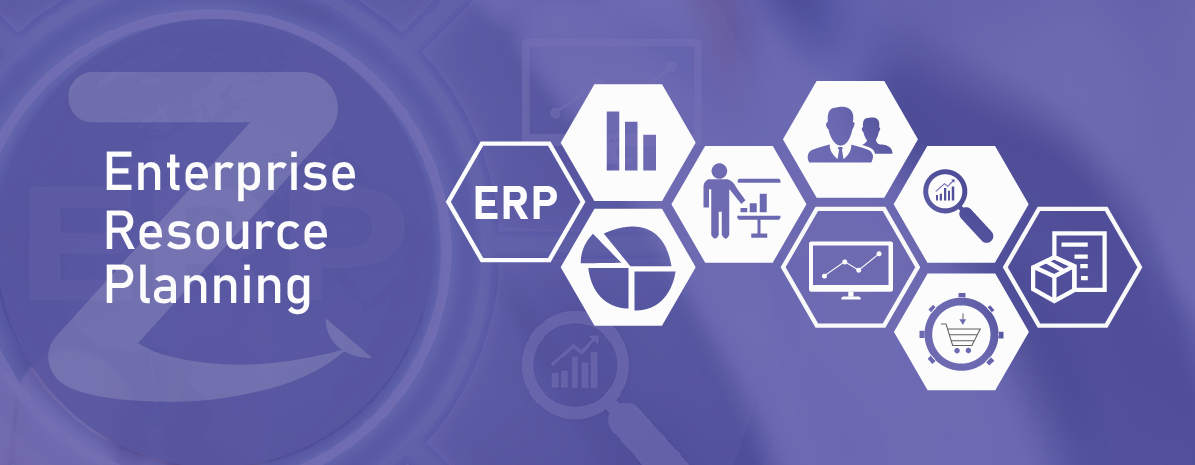
ERP (Enterprise Resource Planning) integrates business processes, enhancing efficiency and collaboration across an organisation.
Description:
Meaning of enterprise resource planning (ERP)
ERP stands for enterprise resource planning. It is a sort of technology that businesses use to handle day-to-day activities like accounting, purchasing, project management, risk and compliance, and supply chain operations. Enterprise performance management software, which helps plan, manage, forecast, and reflect on a company's financial results, is included in a complete ERP package.
ERP systems connect a variety of company operations and allow data to move among them. ERP solutions avoid data duplication and ensure data integrity with a single source of information by gathering an organization's standardized transactional data from numerous sources.
ERP's commercial value
In today's business environment, it's impossible to overlook the importance of ERP. Businesses can integrate different divisions and optimize workflows when company data and processes are herded into ERP systems, resulting in considerable underside benefits. The following are some examples of distinct business advantages:
Real-time data supplied by reports provide better company understanding.
Streamlined company procedures and best practices to save operating costs.
User data exchange in contracts, requisitions, and purchase orders has improved teamwork.
Thanks to a unified user experience across several company operations and well-defined workflows, increased efficiency.
A shared user experience and design lead to higher user widespread adoption.
Improved data quality and financial controls reduce risk.
Uniform and interconnected systems reduce management and operational costs.
Seven reasons to switch to a Cloud-based ERP system
It's impossible for businesses of all sizes, including corporate and small to medium, to retire on-premises technologies and migrate entirely to the cloud at the same time. Or, at the very least, it's not something they're confident doing in such a limited timeframe. However, sticking with an on-premises ERP and neglecting all of the benefits of enterprise resource planning as a cloud-based solution is no longer the best option. So why should you use cloud applications to supplement or substitute your on-premises system?
1. Adapt to new and emerging SaaS technologies with ease.
Unlike your old system, next-generation technologies like artificial intelligence (AI) let cloud-based systems improve their capabilities drastically without the need for regular reports. As a result, ERP systems are becoming increasingly easier to manage and utilize, even without any additional or fresh information from the end-user.
2. Increase the value of your current ERP system.
Complementing, enhancing, and augmenting essential functions with legacy software and cloud apps is possible. In addition, this method can give legacy ERP systems a fresh lease on life, allowing firms to begin implementing cloud features.
3. Take advantage of emerging technology
Discovering cloud applications to supplement your legacy ERP software modules offers the benefits of quickly evolving new technologies and user conventions right away. These systems are complementary and give instant business capabilities and value without requiring a significant change in your processes.
4. Reduce reliance on third-parties
To generate operational business intelligence, old systems often require the involvement of a third-party provider for analytics and reporting. However, when you use cloud applications from your legacy ERP supplier, you can usually get the same or better information without dealing with another vendor.
5. Make your financial systems more advanced.
Contemporary reporting engines were never meant to be built on top of legacy systems. Instead, cloud-based technology emerged in the last decade with a whole new perspective and understanding of what was feasible and what was required for ERP platforms to be profitable.
6. Increased security resources
Cloud technology solutions employ big, full-time teams solely dedicated to proactively monitoring and staying current with cloud security concerns and risks 24 hours a day, seven days a week.
7. Recruit in-demand personnel
Young workers of the future have grown up with seamless mobile technology, simple to use and always available. As a result, no organisation that relies solely on on-premises technology will be able to attract top talent, regardless of generation.